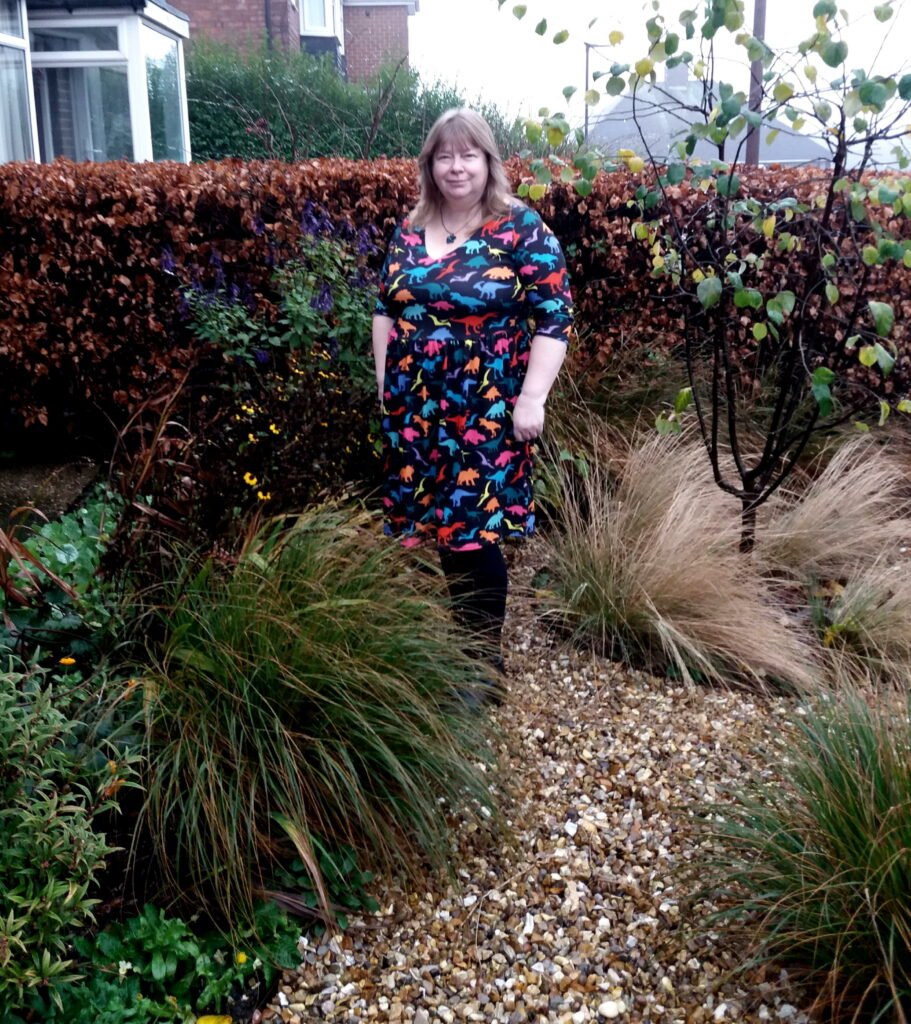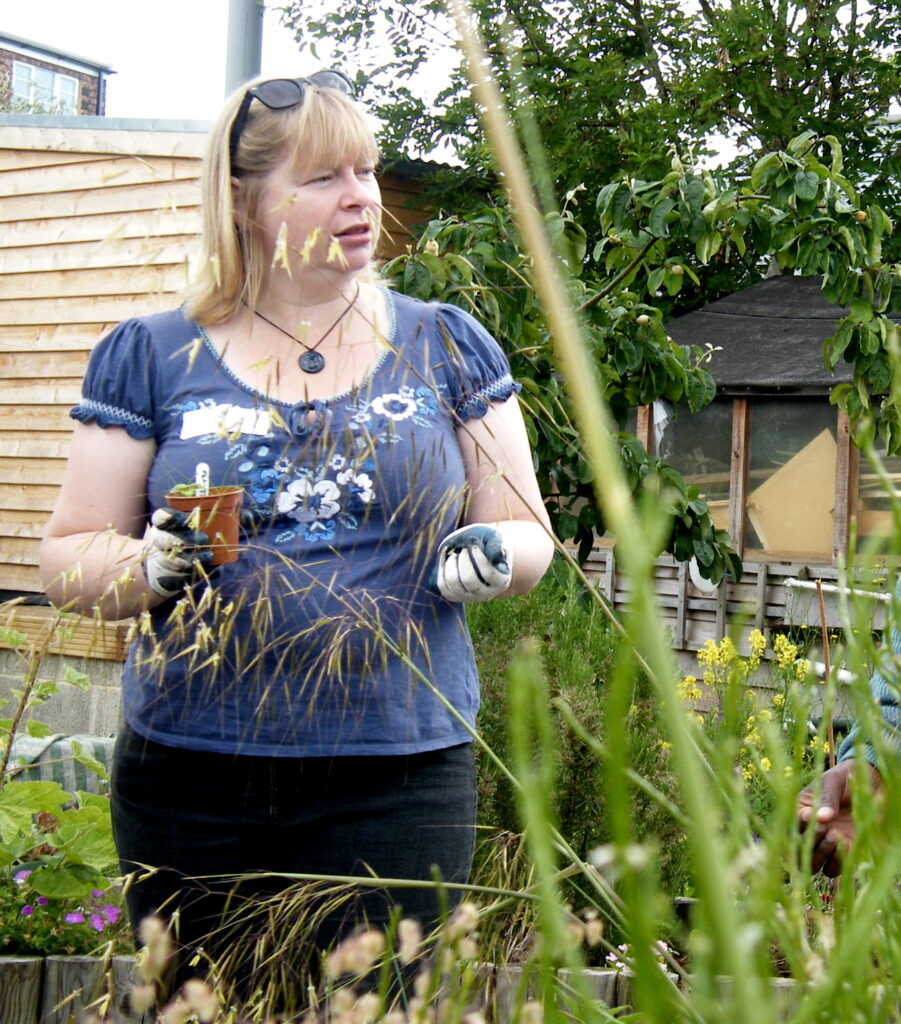This article was first published in the ME Association’s ME Essential magazine, Spring 2021, pages 32-33.

Slow onset ME. You’ve probably never heard of it. It’s mentioned here and there, and on the ME Association website, but there are no explanatory leaflets or research articles. This isn’t anybody’s fault. It’s just that this subset of ME is much less well understood. It must be hard to research something that is so gradual that it is almost ephemeral. So I wanted to write up my ME journey, so that when others search for “slow-onset ME”, they would know they’re not alone.
* * * * *
I got a virus and never got well. That’s the most common response to the question ‘How did you get ME?’. It wasn’t like that for me. No virus, just a slow decline over many years, with my symptoms masked by those of other health problems.
Like practically everybody else I know with ME, I was a busy and active person before the illness. I worked full-time, was a hobby gardener who grew a lot of her own food, was outgoing and with lots of friends, I traveled, and was an activist involved with several campaign groups.
In my late 30s, I started having problems with fatigue. I thought it was because I was leading a busy life and coping with back pain. I did everything I could to manage the back pain: physios, chiropractors, daily stretches. I still felt worn out, but I pushed through. I never realised the fatigue had another cause.
I have also suffered from headaches and migraine my whole life; migraines that started to appear like clockwork every month in my early 40’s, and tension headaches that were less predictable but could last for days (sometimes weeks). It wasn’t surprising that they left me exhausted, but I just took tablets and pushed through the fatigue.
I also started having problems with sleep, either trouble getting to sleep or not feeling as refreshed when I woke as I used to. Again, I put this all down to the above-mentioned problems.
Eventually a doctor solved the issue of my monthly migraines by suggesting I switch to the mini pill. This worked brilliantly, but even with the migraines gone I was still struggling with fatigue. I started working reduced hours and cut down on some of the activities I loved, like gardening. But the exhaustion didn’t go away. As 2010 wore on, I found I would crash out on Friday nights and have no energy to do anything but rest all weekend. I had been an energetic campaigner on social justice issues, but I gave up a couple of my volunteer roles to conserve my energy. I hated having to do this, and I hated having to cancel plans with friends because I was too exhausted to see them. My partner was getting concerned about the change in me, but I poo-pooed his worries and pushed through.

By now, when the fatigue hit it came with aching muscles. I found I was taking much longer to recover from any cold or virus I caught. I even cut short a holiday in Germany because a virus I caught there made me so ill. But I’d got used to pushing through, so I went back to work before I was better.
By now I was doing my dream job with a community garden, running events themed around growing or making food, managing the volunteers, and doing day to day admin work. I loved the job, but it didn’t pay much, so I was also freelancing as a finance officer for a community energy organisation.
Something had to give. By 2012, I would collapse in bed as soon as I got home from work. If I ran a Saturday event in the garden, I would spend the whole of Sunday in bed. I had to cut back on my campaigning activities even further and struggled to manage my beloved allotment, even with help from friends.
Eventually, I gave up the fulfilling but demanding job at the community garden and just did the quieter office job, working from home sometimes. My thoughtful GP agreed there was something wrong and started a round of tests to see what might be causing the now constant fatigue and utter lack of energy, sleep problems, pain, and regularly not being able to think straight.
Unfortunately, before I could get the results, life got in the way. I made a planned trip to Melbourne, Australia (where I’m originally from) and got so ill on the plane home that they had to wheelchair me off. That triggered a further decline in my health, so that anything I did left me exhausted and in pain. Cutting my work hours right down to 1.5 days a week didn’t help.
Meanwhile, my partner and I had decided to move from Oxford to Sheffield, so my Oxford GP never got to complete the tests. But by now I was sure that something was wrong, so the first thing I did on arriving in Sheffield was to register with a new GP in search of a diagnosis.
In June 2013 I was finally diagnosed with moderate ME. It was a relief to have a name for what I was experiencing. By now I was 46. With hindsight, I think I had been experiencing the symptoms of ME for 8-10 years.
I wish I could say that I’m better since the diagnosis, but despite seven years of doing everything I can to pace myself and manage my symptoms, I’m actually worse. My ME has changed from Moderate to Severe and on the rare occasions I manage to get out, I use a mobility scooter.
I have always been a ‘doing’ person. I love being busy, having a purpose. I adore gardening, and if ME hadn’t happened, was planning on using the move to Sheffield to try out working for a small plant nursery and/or doing permaculture garden design. Whilst I manage some gardening now, it’s with the help of a regular gardener. I went from growing a lot of my own food to being lucky to have the energy to spend an hour in the garden once or twice a month. So much was taken away from me: work, activism, friends and travelling. I’m holding onto gardening by the skin of my teeth.

The devastating thing about slow onset ME is that you don’t realise what you have whilst it’s mild, particularly if you have other health issues, as I did. This is where a test for ME could make such a big difference. If we always tested for ME when people presented with certain symptoms, more people might get diagnosed sooner and realise that they need to reduce their daily activity. Slowing down and getting enough rest might mean that you can prevent yourself going from Mild to Moderate or Severe ME. In the meantime, I can hope that writing this can boost awareness of Slow-onset ME. And maybe it might help others see a similar pattern, and help them with diagnosis much sooner.
Hi, I have experience with this type of ME, although I did eventually have an EBV reactivation, which was the last straw causing me to stop working. I found out I have mercury toxicity, along with lead and arsenic. I’m doing the Andy Cutler mercury chelation protocol to chelate out the metals. I’m having some small, gradual, but very promising success. There are many people like us on the Cutler Facebook page and website forum, some are officially diagnosed, many are not.
A $100 hair test, properly interpreted, can tell you if mercury is an issue for you. If you have, or have ever had, mercury “silver” amalgam fillings that’s an obvious clue, but not the only way you can get poisoned.
ps. I believe that the typical kind of ME which starts with a virus, can also be triggered by heavy metal toxicity as the metals affect your immune system among other things. However, I wouldn’t be arrogant enough to say that all cases are caused this way. But since it’s cheap and easy to check for, and there’s a way to treat it, why not rule it in or out?
Your garden is beautiful. Thank you for sharing your story <3